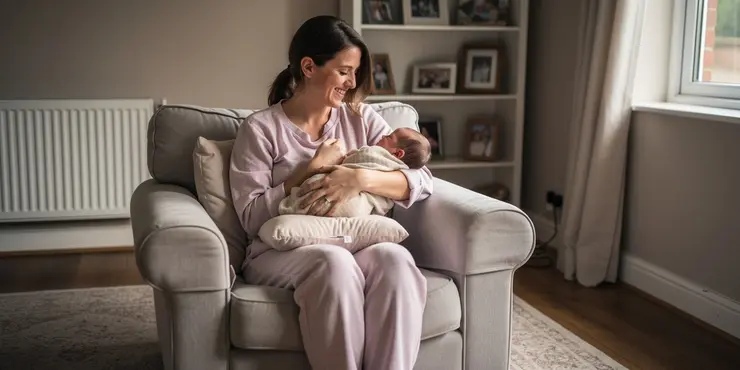
Find Help
More Items From Ergsy search
-
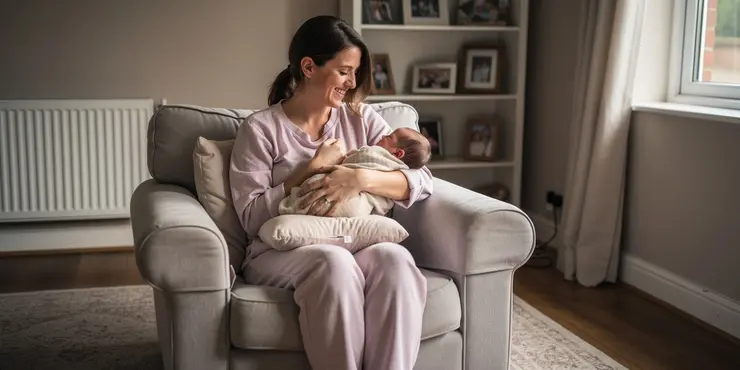
How can I manage pain after a C-section?
Relevance: 100%
-
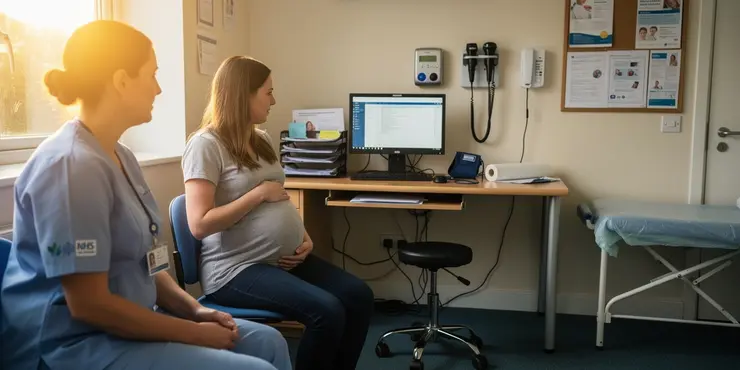
Is a C-section a common procedure in the UK?
Relevance: 72%
-
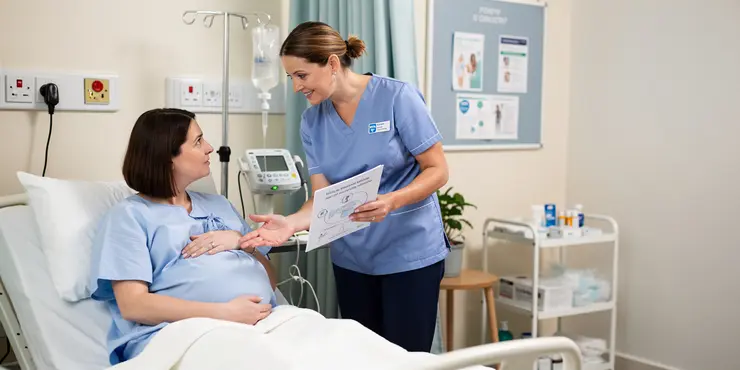
Will I be awake during a C-section?
Relevance: 70%
-
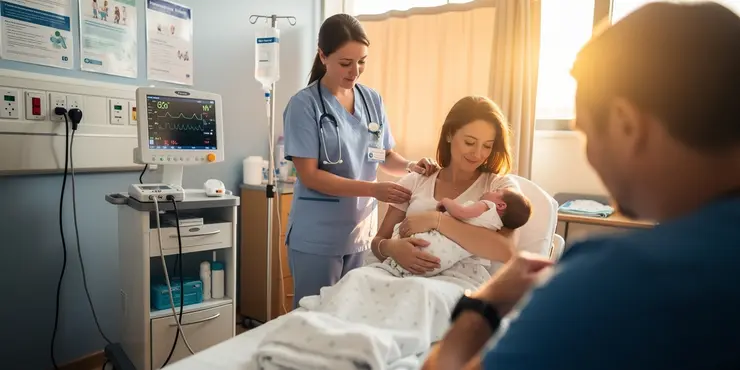
What are the risks associated with a C-section?
Relevance: 70%
-
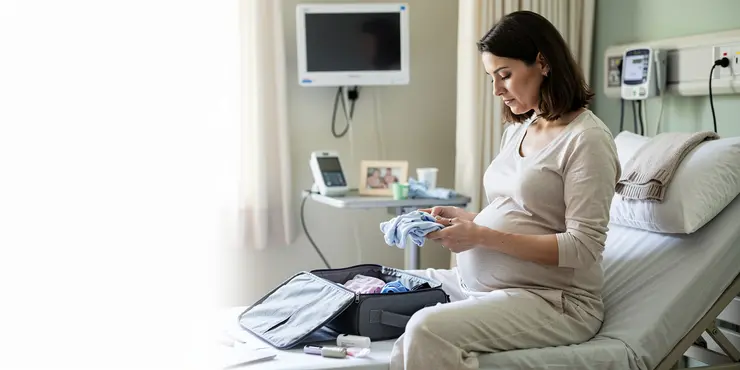
How should I prepare for a C-section?
Relevance: 69%
-
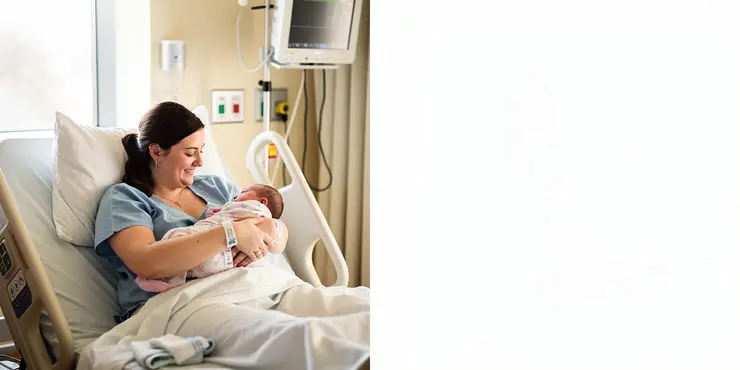
How long will I stay in hospital after a C-section?
Relevance: 67%
-
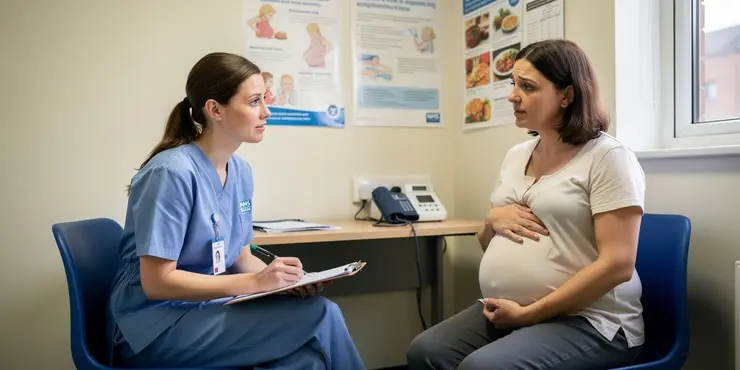
Are there any dietary restrictions before a C-section?
Relevance: 59%
-
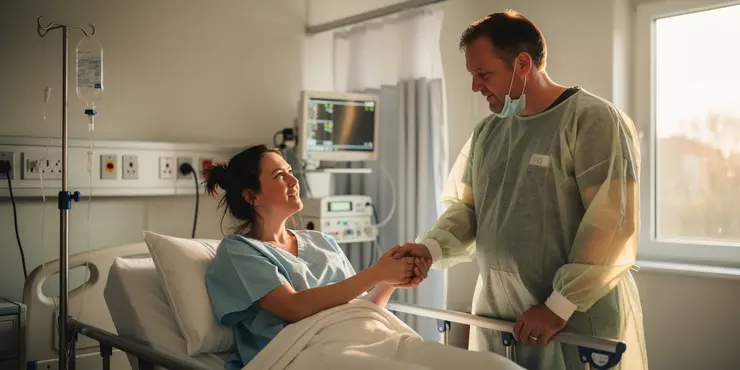
Can my partner be present during the C-section?
Relevance: 58%
-
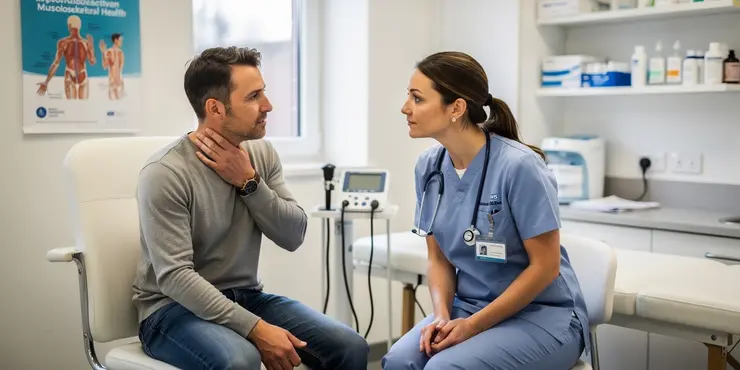
What is the role of pain management in treating whiplash?
Relevance: 53%
-
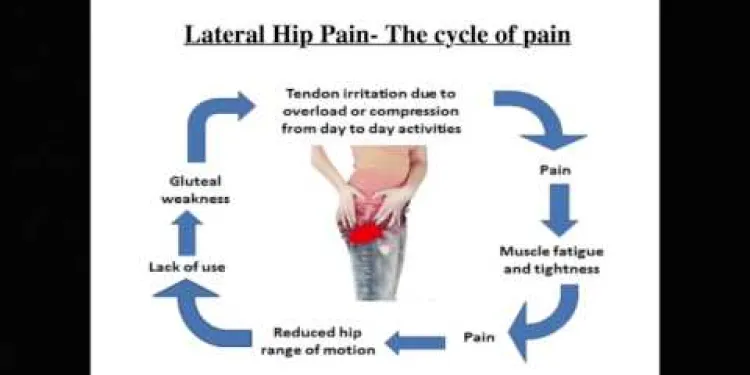
Advice - How to manage your lateral hip pain
Relevance: 49%
-
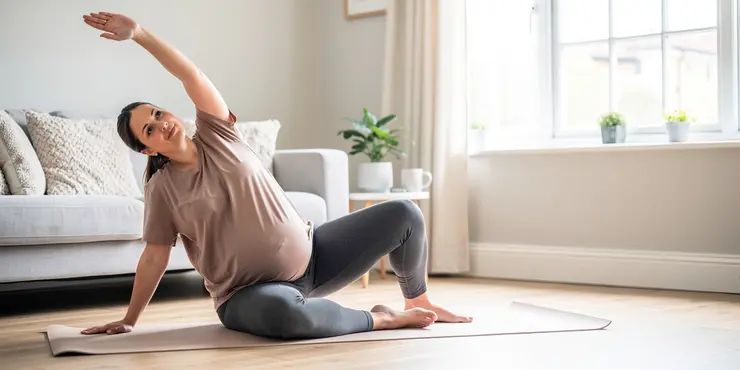
Can lifestyle changes help manage pain and fever during pregnancy?
Relevance: 46%
-
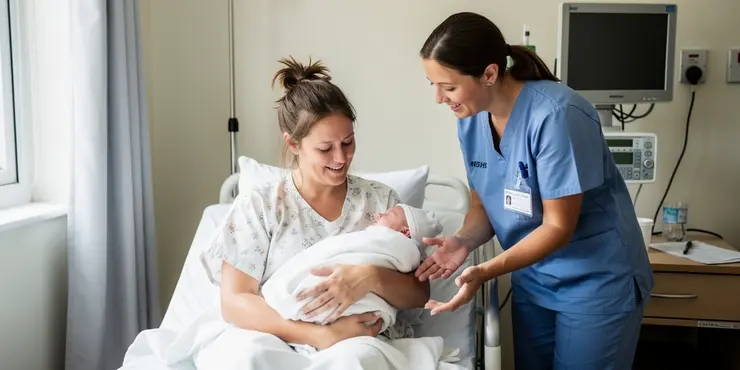
What is the recovery process like after a C-section?
Relevance: 45%
-
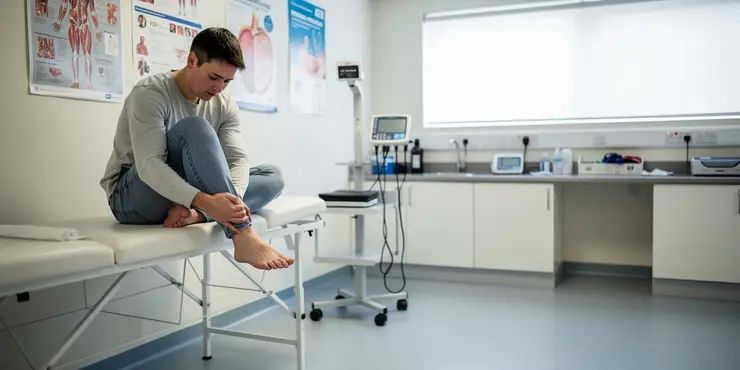
Foot Pain
Relevance: 42%
-
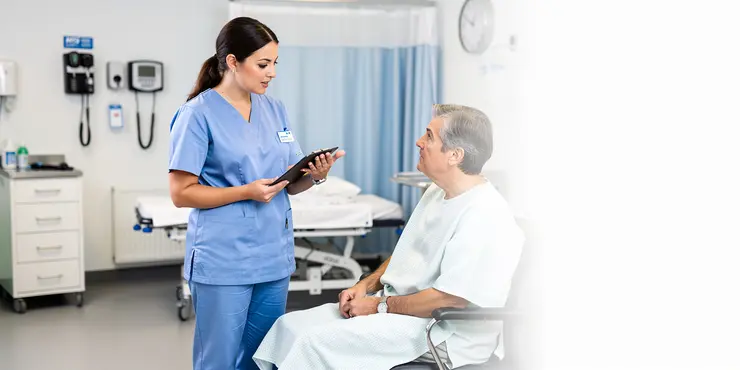
Is a facelift painful?
Relevance: 41%
-
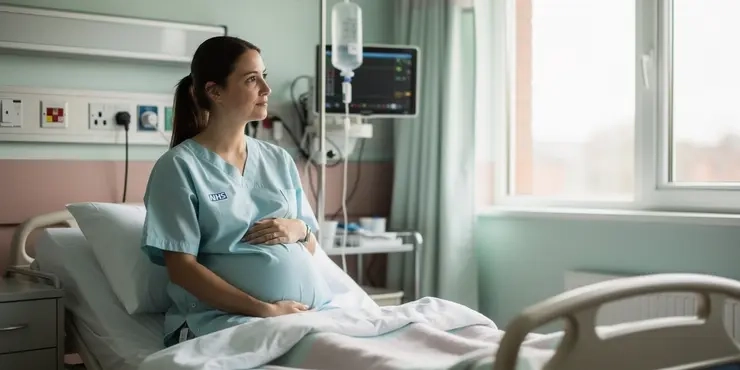
Your Caesarean birth
Relevance: 41%
-

How long does it take to recover from a Caesarean birth?
Relevance: 41%
-
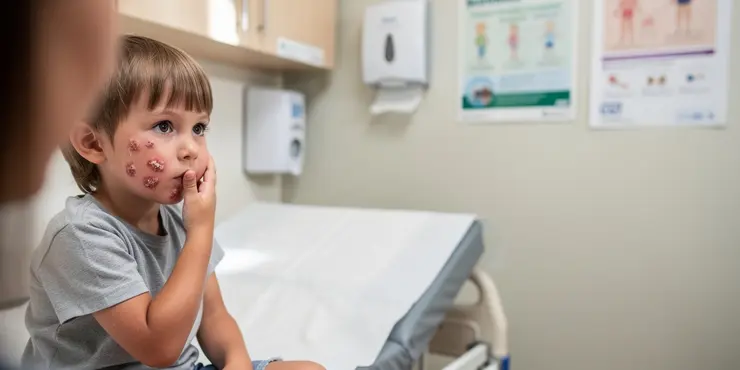
Is impetigo painful?
Relevance: 39%
-
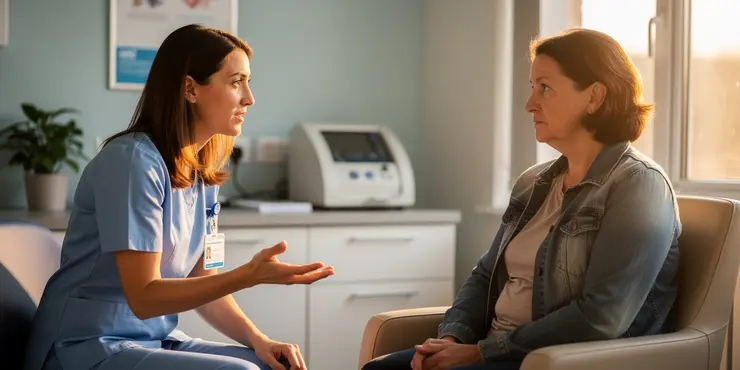
Will I feel pain during the procedure?
Relevance: 39%
-
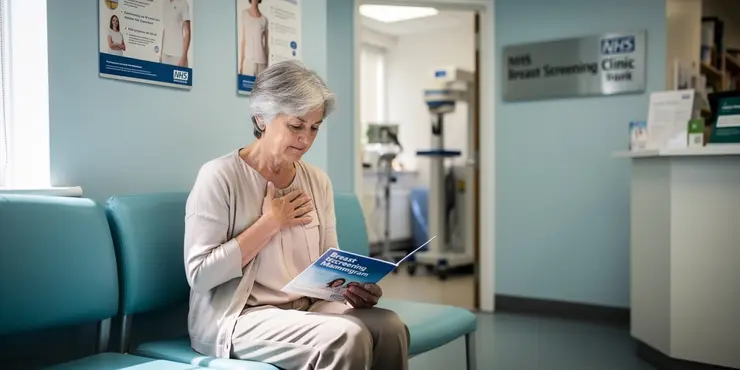
Is a mammogram painful?
Relevance: 38%
-
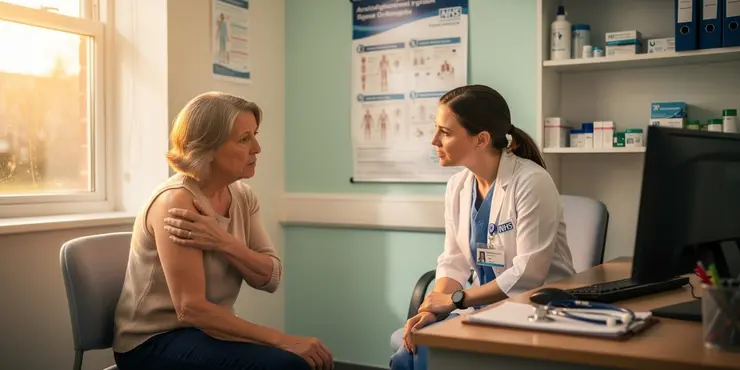
Shoulder pain | NHS
Relevance: 38%
-

Period pain (dysmenorrhoea) - BSL
Relevance: 38%
-
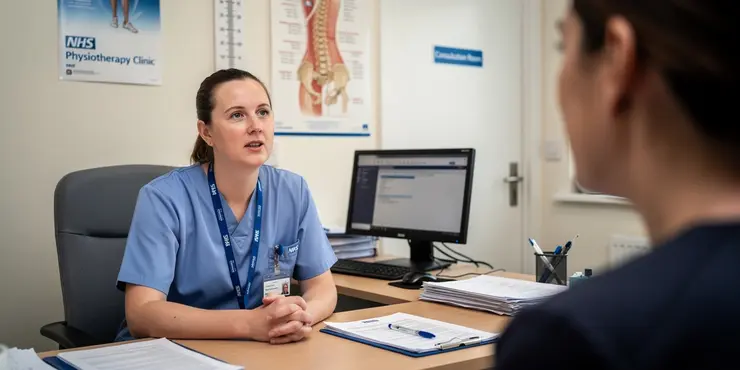
Advice on neck pain and whiplash
Relevance: 37%
-
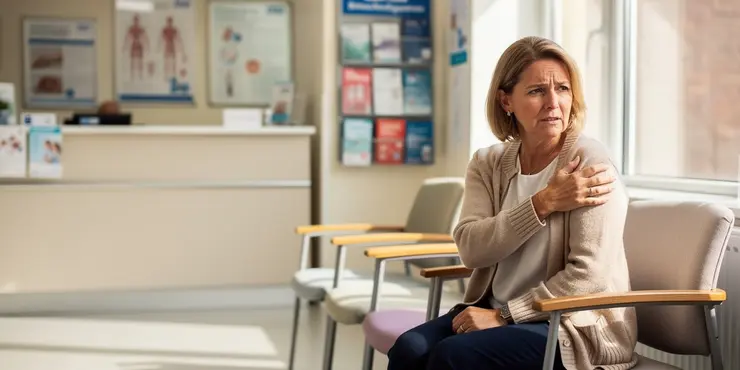
Shoulder pain | NHS
Relevance: 37%
-
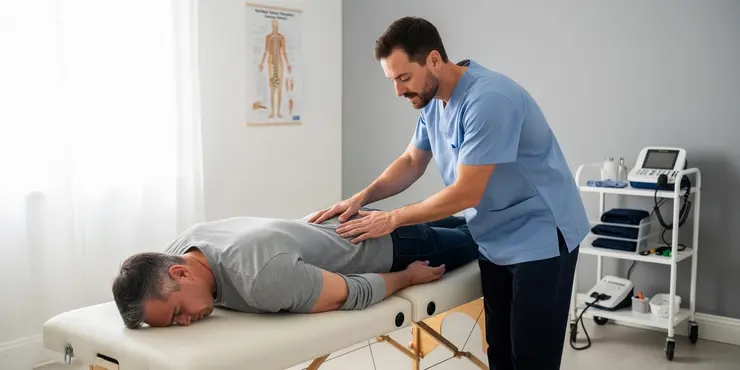
Are chiropractic treatments painful?
Relevance: 37%
-
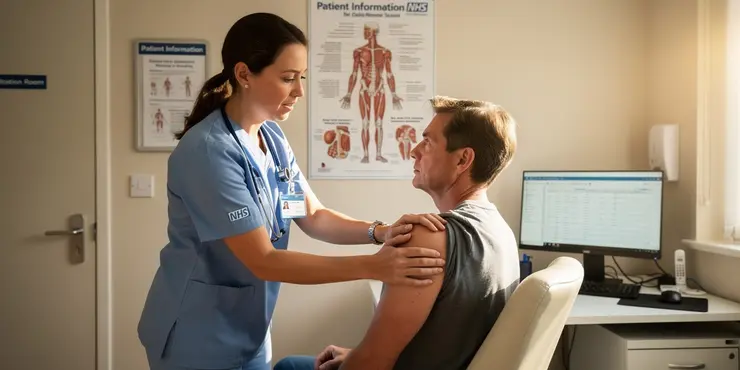
Shoulder subacromial shoulder pain
Relevance: 37%
-
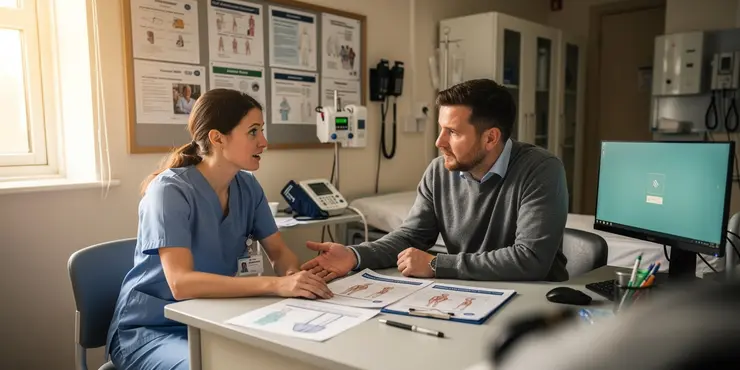
Mechanical Lower Back Pain
Relevance: 37%
-
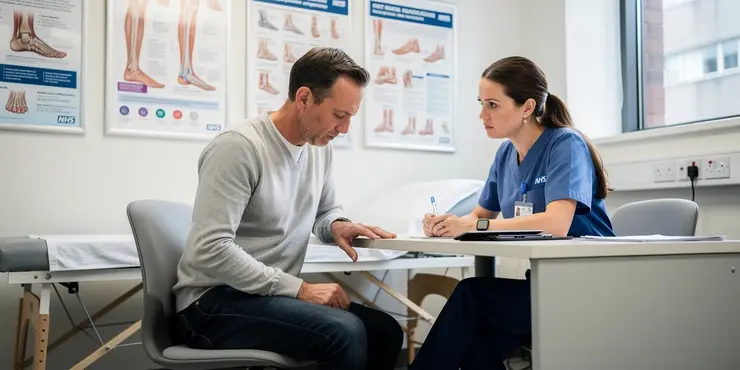
Heel pain | NHS
Relevance: 37%
-

How to deal with period pain | NHS
Relevance: 36%
-

How to deal with period pain | NHS
Relevance: 36%
-
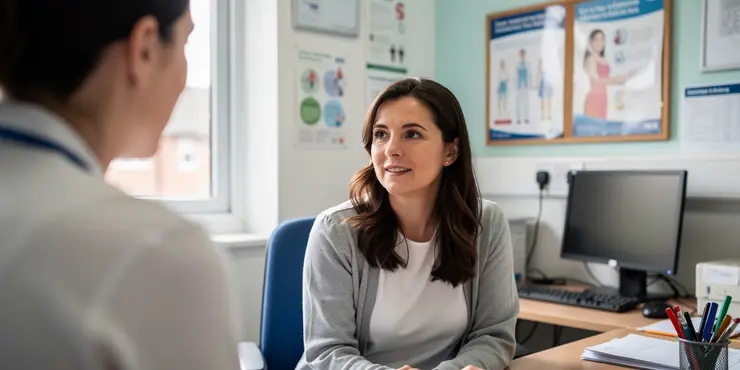
Stomach ache and abdominal pain
Relevance: 36%
-
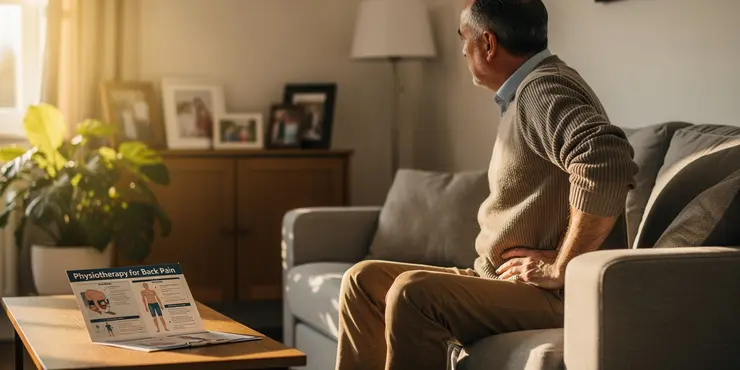
How to treat back pain | NHS
Relevance: 36%
-
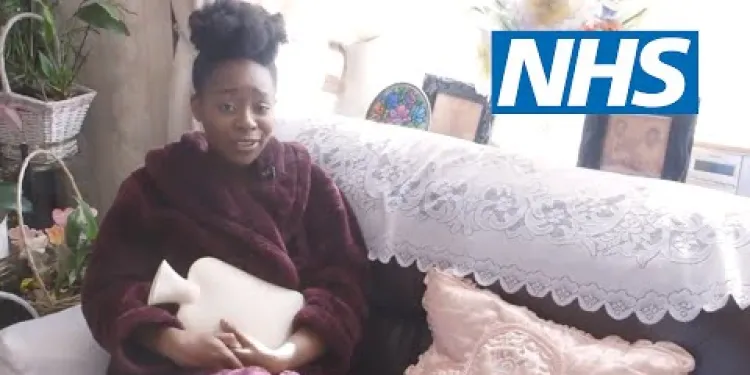
How to deal with period pain | NHS
Relevance: 36%
-
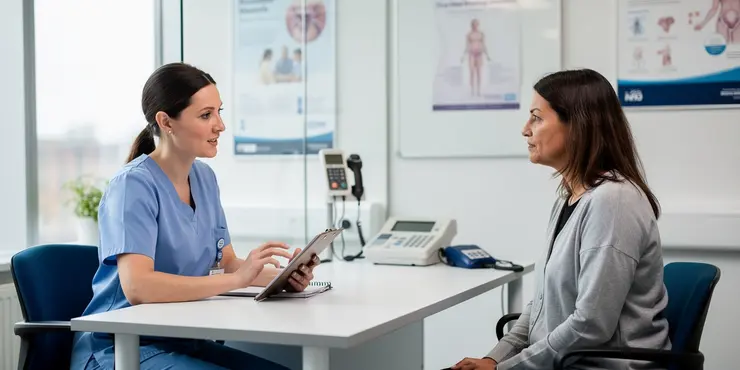
Is the womb lining test painful?
Relevance: 35%
-
Shoulder pain | NHS
Relevance: 35%
-
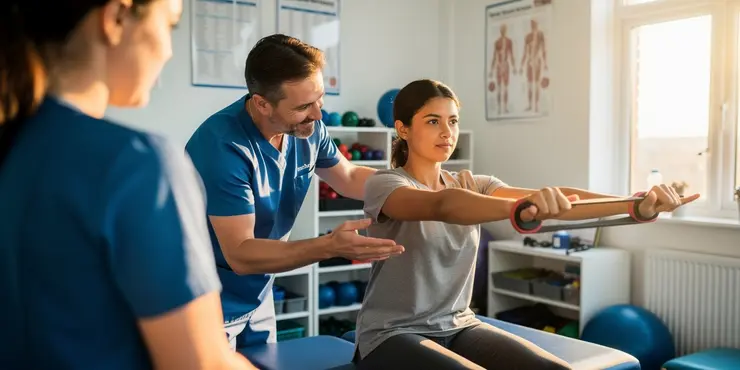
Greater trochanteric pain syndrome
Relevance: 35%
-
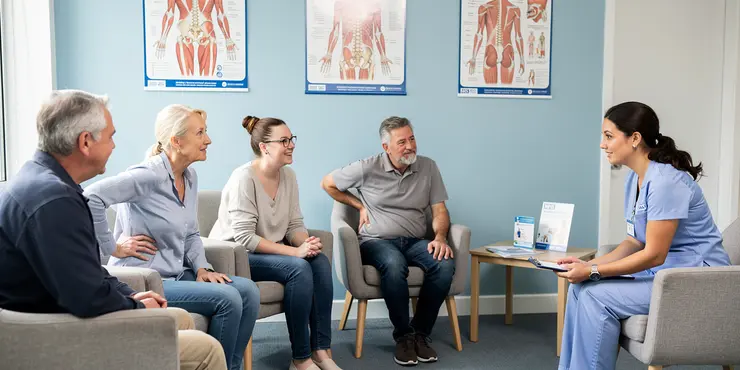
Useful information for patients with lower back pain
Relevance: 35%
-

How to deal with period pain | NHS
Relevance: 35%
-
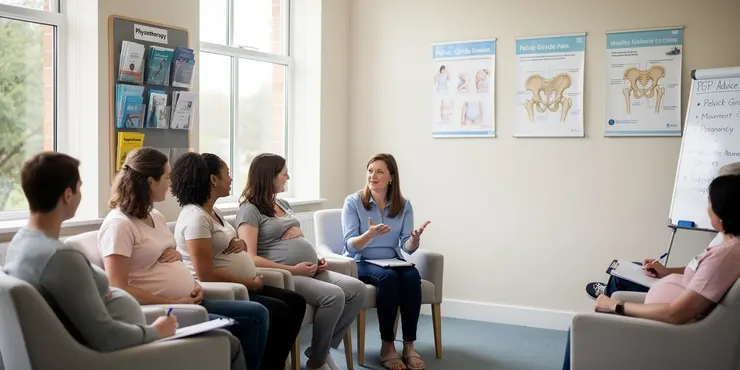
Pelvic Girdle Pain Advice Class
Relevance: 35%
-
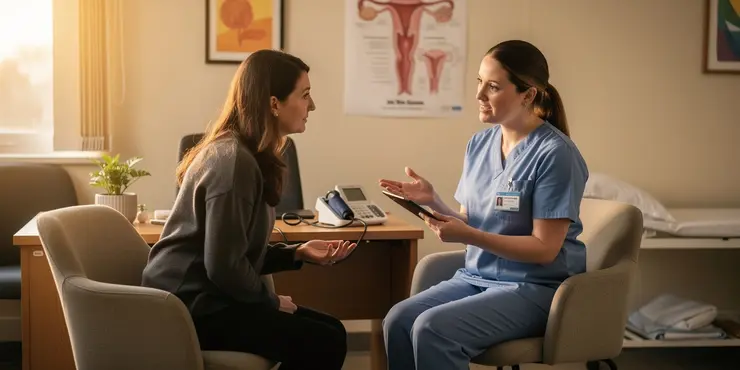
Is a womb lining test painful?
Relevance: 34%
-
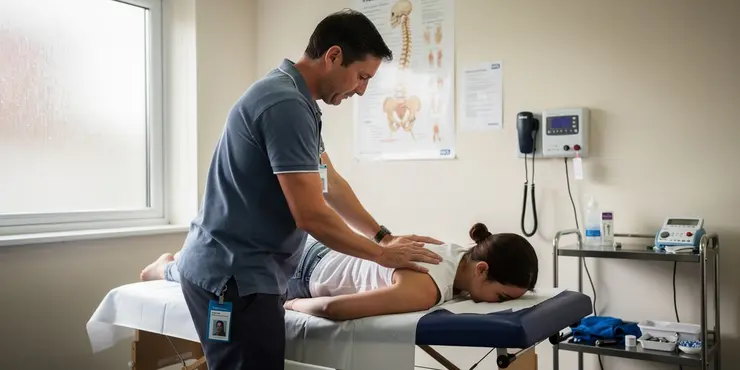
How do chiropractors treat back pain?
Relevance: 34%
Pain Management After a C-section
Managing pain after a Caesarean section (C-section) is critical for recovery and wellbeing. In the UK, healthcare providers offer several strategies to help new mothers manage pain effectively and return to their daily activities comfortably.
Understanding Post-C-section Pain
C-sections are major surgeries, and it's common to experience pain as the body heals. Typically, pain is felt around the incision site and internally where tissues have been cut and stitched. While some discomfort is inevitable, effective pain management can significantly reduce recovery time and improve overall experience.
Pain Relief Medications
The NHS recommends several medications for pain relief post-C-section. Paracetamol and ibuprofen are usually suggested as first-line pain relief options. Paracetamol helps reduce pain and inflammation, while ibuprofen addresses more intense symptoms. It's essential to adhere to prescribed dosages and medical advice from healthcare providers when using these medications.
In some cases, doctors may prescribe stronger pain relievers, such as codeine, for short-term management of severe pain. However, these should be used sparingly, as they can be passed to the baby through breast milk and cause side effects.
Non-Medical Pain Management Techniques
Apart from medication, several non-pharmacological methods can help manage post-C-section pain:
Rest and Movement: Balancing rest and gentle movement is crucial for recovery. Avoiding strenuous activities and lifting heavy objects while gradually increasing mobility can enhance healing.
Breathing and Relaxation: Practicing deep breathing and relaxation techniques can help alleviate pain and promote a sense of calm.
Supportive Clothing: Wearing an abdominal support or binder can provide additional support to the incision area, reducing discomfort during movement.
The Importance of Self-Care
Caring for oneself post-C-section is more than managing pain; it includes prioritizing nutrition and hydration. Consuming balanced meals rich in essential nutrients can aid recovery, and staying hydrated is crucial for overall health and well-being.
Seeking Professional Advice
If pain becomes unmanageable or persistent, it's important to seek advice from healthcare professionals. Midwives, health visitors, or GPs can provide guidance tailored to individual circumstances and adjust pain management strategies if necessary.
Finally, while it's natural to focus on newborn care, new mothers should remember that their recovery and well-being are just as important. Understanding and implementing effective pain management techniques can provide a smoother transition into parenthood and support long-term health.
Pain Management After a C-section
After having a C-section, it is important to take care of your pain so you can get better. In the UK, doctors and nurses have ways to help new mothers feel better and get back to normal activities.
Understanding Post-C-section Pain
A C-section is a big surgery. It is normal to feel pain as your body heals. You may feel pain where you were cut, both on the outside and inside. While you will have some pain, taking care of it can help you get better faster and make you feel better overall.
Pain Relief Medications
The NHS suggests some medicines to help with pain after a C-section. Paracetamol and ibuprofen are common choices. Paracetamol helps with pain and swelling, and ibuprofen helps with stronger pain. It's important to follow the doctor's advice about how much to take.
Sometimes, doctors might give stronger medicine like codeine for bad pain. But you should only take it for a short time because it can go to the baby through breast milk and might cause problems.
Non-Medical Pain Management Techniques
Apart from medicines, there are other ways to help with pain after a C-section:
Rest and Movement: It is important to get enough rest but also move a little bit. Don't do heavy work or lift things, but gentle moving can help you heal.
Breathing and Relaxation: Take deep breaths and try to relax. This can help you feel less pain.
Supportive Clothing: Wear clothes that support your belly. This can help you feel better when you move.
The Importance of Self-Care
Looking after yourself after a C-section is not just about pain. Eat good food and drink water to help your body heal and stay healthy.
Seeking Professional Advice
If the pain is too much or doesn't go away, talk to a doctor or nurse. They can give you more help that suits you. They can change your pain plan if needed.
Remember, while looking after your baby is important, you also need to care for yourself. Learning how to handle pain can make becoming a parent easier and keep you healthy.
Frequently Asked Questions
What medications can I take for pain after a C-section?
You can take prescribed pain medications such as ibuprofen, acetaminophen, or your doctor's prescribed narcotics if needed.
How long will I experience pain after a C-section?
Pain typically decreases significantly within the first 2 weeks, but some discomfort may last for several weeks.
Can I use a heating pad to manage C-section pain?
Yes, a heating pad can help soothe pain and reduce muscle tension around the incision site.
Should I avoid certain activities to help manage pain?
Yes, avoid heavy lifting, intense physical activities, and anything that strains your abdominal muscles for at least 6 weeks.
Is it normal to feel pain at the incision site weeks after a C-section?
Mild pain and sensitivity at the incision site are normal for several weeks, but consult your doctor if it worsens or is severe.
When should I contact my doctor about my pain?
Contact your doctor if your pain is severe, if you have a fever, redness, or discharge from the incision site.
How can I care for my C-section incision to reduce pain?
Keep the incision clean, dry, and protected. Avoid tight clothing that may irritate the area.
Are there natural remedies to manage C-section pain?
Some people find relief with gentle massage, relaxation techniques, and herbal remedies like arnica or turmeric, but consult your doctor first.
Can breastfeeding help with pain management?
Breastfeeding can release oxytocin, which helps with uterus contraction and could aid in reducing pain perception.
What lifestyle changes can help manage pain after a C-section?
Ensure plenty of rest, maintain a healthy diet to promote healing, and stay hydrated.
Is there a specific position that can help reduce pain while sleeping?
Sleeping on your back or side with a pillow supporting your abdomen can help reduce pain and pressure.
Can physical therapy help with C-section recovery pain?
Yes, physical therapy can help improve mobility and reduce pain by teaching you exercises tailored to recover post-surgery.
How soon can I start walking after a C-section?
Walking is encouraged soon after surgery as it can promote healing and reduce the risk of blood clots, but take it slow and increase activity gradually.
Can postpartum support belts help with pain management?
Yes, postpartum support belts can stabilize the abdominal area and help reduce pain and discomfort.
Are there any breathing techniques to manage C-section pain?
Deep breathing exercises can relax the body, promote healing, and help manage pain.
Should I apply any ointments to the C-section scar to help with pain?
Consult your doctor before applying any ointments. Keeping the area clean and dry is usually sufficient initially.
Can over-the-counter pain relief be effective after a C-section?
Over-the-counter medications like ibuprofen or acetaminophen can be effective for managing mild pain. Consult your doctor.
How can I make daily activities more comfortable post-C-section?
Use a pillow to protect your incision when moving from sitting to standing, and take frequent rests while doing household activities.
Is it safe to drive after a C-section?
You should avoid driving for at least 2 weeks, or until you feel comfortable and able to maneuver without pain.
How does hydration affect my pain levels after a C-section?
Staying hydrated is crucial as it helps with healing, reduces fluid retention, and can help manage discomfort.
What medicine can I take for pain after a C-section?
If you have pain after a C-section, there are safe medicines you can take.
You can ask your doctor for help to choose the right medicine.
Your doctor might give you strong medicine or tell you to take medicine like ibuprofen.
You can also use warm towels or gentle movement to feel better.
If you are unsure, always talk to your doctor first.
You can take medicine that the doctor gives you to help with pain. This can be medicine like ibuprofen, acetaminophen, or stronger medicine if the doctor says you need it.
How long will I feel pain after a C-section?
A C-section is an operation to help give birth. After the operation, it is normal to feel some pain.
The pain usually lasts for a few days to a few weeks. Most people feel better after about 2 weeks.
Here are some tips to help you feel better:
- Get lots of rest.
- Ask a friend or family member to help you with chores.
- Take the medicine your doctor gives you for pain.
- Use pillows to support your tummy when you lie down.
If the pain does not get better or gets worse, talk to your doctor.
Pain usually gets a lot better in the first 2 weeks. But it can still hurt a little for a few more weeks.
Can I use a heating pad to help with C-section pain?
Using a heating pad might help with pain after a C-section.
But, always ask your doctor first to make sure it is safe for you.
If you have pain, here are some tips:
- You can use ice packs. They might help reduce swelling.
- Take deep breaths. This can help you relax.
- Rest when you can. Your body needs time to heal.
Remember, it is important to follow what your doctor says.
Yes, a heating pad can help. It makes pain feel better and helps muscles relax near the cut.
Can doing some things make pain worse?
Sometimes, doing certain activities can make pain feel worse. Think about what makes your pain bad and what helps it.
Here are some tips to help with pain:
- Listen to Your Body: If something hurts, stop and rest.
- Take Breaks: Do a little at a time. Don’t do too much at once.
- Ask for Help: If a task is too hard, ask someone to help you.
Remember, it's okay to take it slow and be kind to yourself.
Yes, do not lift heavy things or do hard exercises. Do not do activities that hurt your tummy muscles for 6 weeks. This will help you heal. Using a gentle reminder, like putting a note on your fridge, can help you remember.
Is it okay to feel hurt where the doctor cut you weeks after a C-section?
It's normal for the cut to feel a little sore or tender for a few weeks. But if it starts to hurt a lot or gets worse, you should talk to your doctor.
When should I talk to my doctor about my pain?
If you feel pain, it is important to know when to ask for help. Here are some simple signs to help you decide:
- Your pain is very strong and does not go away.
- Your pain stops you from playing or doing things you like.
- The pain makes you feel very sad or worried.
- You have pain and a fever or feel very sick.
If you have any of these signs, tell a grown-up and talk to your doctor. They can help you feel better.
If you need help talking to your doctor, you can:
- Write down how you feel before the doctor visit.
- Take someone with you to help you remember what the doctor says.
- Ask the doctor to explain things in a way you understand.
If you have bad pain, a fever, red skin, or any liquid coming from where you had surgery, tell your doctor.
How can I look after my C-section cut to feel less pain?
Keep the cut clean, dry, and covered. Do not wear tight clothes that might rub on it.
Can you use things from nature to help with C-section pain?
Some people feel better with a soft massage, doing calm activities, or using natural helpers like arnica or turmeric. But, talk to your doctor first.
Can breastfeeding help with pain?
Breastfeeding can help your body make a special chemical called oxytocin. This helps your tummy muscles get back to normal. It can also help you feel less pain.
What can help with pain after having a C-section?
After having a C-section, some things can help with the pain:
- Take rest breaks often. Don’t rush.
- Ask for help when you need it, like with lifting things.
- Eat healthy food. It helps your body get strong.
- Drink lots of water to stay hydrated.
- Use a pillow on your tummy when you laugh or cough.
- Try gentle walks when you feel ready.
- Talk to your doctor about medicine if you need it.
Some tools can help too:
- A belly band can support your tummy.
- Use ice packs to ease swelling.
- Listen to calming music to relax.
If pain is really strong, tell your doctor or nurse.
Make sure you get lots of sleep. Eat healthy food to help your body get better. Drink lots of water.
Can a sleeping position help with pain?
Is there a way to sleep that makes pain less? Some positions might help. You can try different ways of sleeping to feel better.
Here are some tips:
- Try sleeping on your side.
- Use a soft pillow for support.
- Keep your legs and arms comfortable.
If you're still in pain, you can talk to a doctor.
Try to sleep on your back or side. Use a pillow under your tummy to feel better and less sore.
Can physical therapy help with pain after a C-section?
A C-section is when a baby is born through a cut in the mom’s tummy. Sometimes moms feel sore after this. Physical therapy can make this better.
What is physical therapy?
Physical therapy is a way to help your body feel better. A therapist will show you exercises to do. These exercises make you stronger and can help with pain.
What can you do?
- Talk to your doctor and ask if physical therapy is right for you.
- Use simple stretching exercises to feel better.
- Rest when you need to.
- Try to walk a little every day if you can.
- Ask for help. Friends and family can support you.
Yes, physical therapy can help you move better and feel less pain. The therapist will show you exercises that help you get better after surgery.
When can I start walking after having a C-section?
If you have had a C-section, you might wonder when you can start walking. A C-section is a big surgery, so your body needs time to heal.
Doctors usually say you can start taking short, easy walks a day or two after the C-section. Walking helps your body heal, so it's good to move a little bit when you can.
If it hurts, stop and rest. Everyone is different, so listen to your body and only do what feels right for you.
Here are some tips to help you:
- Take short and slow walks at first.
- Hold onto something or someone if you need help.
- Rest if you feel tired.
- Ask your doctor if you are not sure about walking.
Remember, it's important to go slowly and take care of yourself. Ask for help from family and friends if you need it.
It is good to start walking soon after surgery. Walking can help your body heal and stop blood clots. Start by walking slowly. Then, walk a little bit more each time.
Do belly bands help with pain after having a baby?
After you have a baby, you might feel some pain in your belly or back. Belly bands can help with this pain. They are tight bands that you can wear around your belly.
Belly bands can make you feel better by:
- Holding your belly and back tightly.
- Making it easier to move around.
- Helping your body heal after having a baby.
If you want help with pain after having a baby, you can try using a belly band. Talk to a doctor if you have questions.
Yes, a support belt for after having a baby can help keep your tummy steady. It can also make pain and discomfort feel better.
Can breathing help with C-section pain?
Yes, breathing can help you feel better after a C-section. A C-section is when a baby is born through a cut in the tummy.
Try these steps to feel better:
- Take slow, deep breaths. Breathe in through your nose and out through your mouth.
- Do this breathing when you feel pain or want to relax.
You can use these tools to help:
- Listen to calm music while you breathe.
- Use a pillow to support your tummy.
Ask someone you trust to help. They can remind you to breathe slowly.
Taking deep breaths can help you feel calm, heal better, and deal with pain.
Can I put cream on my C-section scar to stop it hurting?
Ask your doctor before using any creams. Keep the area clean and dry. This is usually enough at first.
Can you use shop-bought pain medicine after a C-section?
If you have had a C-section, you might feel pain. You can buy some pain medicine from the shop to help. This is called "over-the-counter" medicine.
Here are some tips to make it easier:
- Ask your doctor or nurse which medicine is safe for you.
- Read the medicine label. It tells you how much to take.
- Use a reminder to help you remember when to take it.
This way, you can feel better and be safe.
You can take medicine from the store, like ibuprofen or acetaminophen, to help if you have a little bit of pain. Always check with your doctor first.
How can I make daily activities easier after a C-section?
Here are some simple tips:
- Take small, slow walks to help your body heal.
- Ask family or friends for help with housework and lifting things.
- Use a pillow on your belly if you need to sneeze or cough. This can help the hurt.
- Wear loose clothes that don’t press on your belly.
- Rest often and listen to your body. If you are tired, take a break.
Using pictures can help you remember what to do. It can also help to set a schedule so you feel more in control.
When you stand up, hold a soft pillow against your tummy where the cut is. Rest a lot when you do things around the house.
Can I drive after having a C-section?
Had a C-section? Ask your doctor when you can drive again. It might take a few weeks. Use a pillow to protect your belly from the seatbelt. Try using a cushion for comfort. If you feel pain, wait a bit longer before driving. Always be safe!
Wait at least 2 weeks before driving. Only drive when you feel good, with no pain, and can control the car easily.
How does drinking water help with pain after a C-section?
Drinking enough water is important. It can help you feel better after having a C-section.
Here’s how water can help:
- Water helps your body heal.
- It can make pain less bad.
- Drinking water can stop you from feeling sick or dizzy.
Try to drink small sips of water often.
If you need help remembering to drink water, set a timer or ask someone to remind you.
Drinking enough water is very important. It helps your body get better, stops swelling, and can make you feel less pain.
Useful Links
This website offers general information and is not a substitute for professional advice.
Always seek guidance from qualified professionals.
If you have any medical concerns or need urgent help, contact a healthcare professional or emergency services immediately.
Some of this content was generated with AI assistance. We’ve done our best to keep it accurate, helpful, and human-friendly.
- Ergsy carfully checks the information in the videos we provide here.
- Videos shown by Youtube after a video has completed, have NOT been reviewed by ERGSY.
- To view, click the arrow in centre of video.
- Most of the videos you find here will have subtitles and/or closed captions available.
- You may need to turn these on, and choose your preferred language.
- Go to the video you'd like to watch.
- If closed captions (CC) are available, settings will be visible on the bottom right of the video player.
- To turn on Captions, click settings .
- To turn off Captions, click settings again.
More Items From Ergsy search
-

How can I manage pain after a C-section?
Relevance: 100%
-

Is a C-section a common procedure in the UK?
Relevance: 72%
-

Will I be awake during a C-section?
Relevance: 70%
-

What are the risks associated with a C-section?
Relevance: 70%
-

How should I prepare for a C-section?
Relevance: 69%
-

How long will I stay in hospital after a C-section?
Relevance: 67%
-

Are there any dietary restrictions before a C-section?
Relevance: 59%
-

Can my partner be present during the C-section?
Relevance: 58%
-

What is the role of pain management in treating whiplash?
Relevance: 53%
-

Advice - How to manage your lateral hip pain
Relevance: 49%
-

Can lifestyle changes help manage pain and fever during pregnancy?
Relevance: 46%
-

What is the recovery process like after a C-section?
Relevance: 45%
-

Foot Pain
Relevance: 42%
-

Is a facelift painful?
Relevance: 41%
-

Your Caesarean birth
Relevance: 41%
-

How long does it take to recover from a Caesarean birth?
Relevance: 41%
-

Is impetigo painful?
Relevance: 39%
-

Will I feel pain during the procedure?
Relevance: 39%
-

Is a mammogram painful?
Relevance: 38%
-

Shoulder pain | NHS
Relevance: 38%
-

Period pain (dysmenorrhoea) - BSL
Relevance: 38%
-

Advice on neck pain and whiplash
Relevance: 37%
-

Shoulder pain | NHS
Relevance: 37%
-

Are chiropractic treatments painful?
Relevance: 37%
-

Shoulder subacromial shoulder pain
Relevance: 37%
-

Mechanical Lower Back Pain
Relevance: 37%
-

Heel pain | NHS
Relevance: 37%
-

How to deal with period pain | NHS
Relevance: 36%
-

How to deal with period pain | NHS
Relevance: 36%
-

Stomach ache and abdominal pain
Relevance: 36%
-

How to treat back pain | NHS
Relevance: 36%
-

How to deal with period pain | NHS
Relevance: 36%
-

Is the womb lining test painful?
Relevance: 35%
-
Shoulder pain | NHS
Relevance: 35%
-

Greater trochanteric pain syndrome
Relevance: 35%
-

Useful information for patients with lower back pain
Relevance: 35%
-

How to deal with period pain | NHS
Relevance: 35%
-

Pelvic Girdle Pain Advice Class
Relevance: 35%
-

Is a womb lining test painful?
Relevance: 34%
-

How do chiropractors treat back pain?
Relevance: 34%


